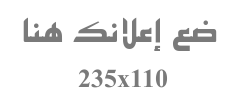أين باتت الثورات العربية؟
قبل ثلاث سنوات، عندما تحرك الشعب المصري بعد الشعب التونسي للتخلص في أقل من خمسة عشر يوماً من ديكتاتورية كانت تبدو غير قابلة للانكسار، أصابت الدهشة المثقفين العرب القابعين في أبراجهم العاجية كما أصابت الخبراء الغربيين الذين كانوا يتبجحون معولين على جمود الجماهير العربية وقلة رغبتهم بالتغيير والديموقراطية. وقد أعجب العالم بسلمية هذه التغيرات التي وإن سجلت بعض الشهداء فهي لم تشهد مجازر على نطاق واسع.
بعد ثلاث سنوات عادت الخيبة والتشاؤم إلى واجهة المتابعة وعاد الحديث عن «آلشتاء العربي» أو عن تخلف الجماهير، وفي مصر لا يتردد البعض عن الحديث عن ضرورة سحب حق الاقتراع من الأميين، أو يتحدثون عن «المؤامرة الغربية» وعدم القدرة على تغيير العالم العربي. وعاد الشعر القديم الذي يقول «من الأفضل العسكريين بدل الإسلاميين».
والآن مع مرور الزمن كيف يمكننا تحليل ما حصل في تونس وكذلك في مصر في بداية ٢٠١١؟ هل كانت ثورة؟ إن سقوط بن علي ومبارك بتك السهولة خلق وهماً بأن ما حصل هو خطوة أولى. ولكن يمكننا أن نضيف بأن هذين الرئيسين سقطا بسرعة لأن النظامين ما زالا قائمين، أي أن الطبقة الحاكمة في البلدين توصلت إلى قناعة بأنه يمكن التضحية بالرئيسين للمحافظة على مصالحها. بمعنى آخر لقد قبل رجال الأعمال وكبار الأغنياء الفاسدين في غالب الأحيان والطبقة العالية من البيروقراطية بذهاب الديكتاتوريين الذين باتا عقبة في سبيل الإبقاء على امتيازاتهم ولتدارك ثورة أكبر وأعمق.
ويقودنا هذا للتفكير في الفارق بين وضعية هذين البلدين وما يحصل في سوريا. هناك استطاع الرئيس بشار الأسد إقناع قسم كبير من الطبقة الحاكمة بأن سقوطه سيجر عليهم ليس فقط فقدان امتيازاتهم ولكن أيضاً تصفيتهم الجسدية.لماذا نجح الأسد حيث فشل كل من بن علي ومبارك؟ لقد لعبت عوامل كثيرة في ما حصل، أولاً كان لدى اركان النظام ما زاد من لحمته تصميم فظ وعنيف على الالتفاف حول الرئيس بعد فترة تردد بسيطة. ولكن عسكرة الانتفاضة ووصول الجهاديين الأجانب وعدم قدرة المعارضة على «طمأنة» الأقليات وقسم من النخبة، كل ذلك سهل مناورات الأسد ليغلف مقاومته برداء «مقاومة الجهاديين».
إن الانتصار الذي تمثل في بلاد النيل بسقوط مبارك لم يقد إلى انهيار إطار الدولة القديم. فالإصلاحات الكبرى خصوصاً في وزارة الداخلية، وطموحات الشعب بعدالة اجتماعية (هنا يجب أن نتذكر دور الطبقة العاملة في ثورتي تونس ومصر)، كانت تتطلب استراتيجية على المدى القصير والمتوسط. إلا أن المعارضة كانت عاجزة عن تقديم برنامج واقعي، ما عدا التلويح بالناصرية كنموذج لمصر وهو نموذج صعب التطبيق في الظروف الحالية (أو بالأحرى لم تشرح أي من القوى على الأرض كيف يمكن تطبيقه في الظروف الحالية). إذا لم تكن هذه القوى قادرة على وضع استراتيجية تغيير تدريجي لآلة الدولة بشكل يمكِّن من التخلص من معظم مسؤولي النظام السابق، من هنا يمكن القول إن عدم وجود برنامج واضح كان مصدر قوة ومصدر ضعف لحركة يناير فبراير ٢٠١١.
إذا قارنا ما حصل بالثورات التي عرفها العالم العربي في القرن العشرين، علينا أن نلاحظ أنه لم يتواجد ولا يوجد حتى الآن حزب يستطيع أن يحشد الجماهير (كما كان الوضع في روسيا عام ١٩١٧ أو في إيران عام ١٩٧٨) لكسر آلة الدولة وبناء آلة جديدة، أي لمحو الماضي بشكل جذري. يأسف البعض لهذا الغياب، بينما البعض الآخر يغتبط له، ولكنه واقع لن يتغير في السنوات القليلة المقبلة. وستظل الثورات العربية نوعاً من مسارات فيها بعض التقدم وفيها بعض العودة إلى الوراء من دون تغيير جذري يضع حداً بين «ما قبل» وبين «ما بعد» الثورة.
في هذا المسار تصرف الإخوان المسلمين الذين شاركوا في حركة يناير فبراير كقوة محافظة بشكل عام، وحاولا إيجاد نوع من المساومة مع أركان النظام السابق أكان مع قيادة الجيش أو أركان الشرطة. ومن السخرية بمكان أن يكون وزير الداخلية الذي عينه محمد مرسي هو الذي يقود اليوم حملة القمع العنيفة بحق الإخوان. وعند وصوله إلى الحكم تابع مرسي في هذا المسار رغم أنه كان قد وعد الثوريين بين الدورتين بتغيير مساره، وقد شجعه على ذلك تردد المعارضة الممثلة بجبهة الإنقاذ الوطني، وتقاربها مع قوى النظام السابق. يمكن القول إن الإخوان بتعصبهم وأخطائهم نجحوا بإعادة تأهيل النظام القديم لدى شرائح واسعة من المصريين قادت إلى تبرير انقلاب ٣ تموز/يوليو.
غير أنه من الواضح أن الحكومة الحالية رغم دعم العسكر لها ورغم حملة القمع العنيفة (أو لربما بسبب هذه الحملة) لن تستطيع إيجاد ركيزة صلبة لها. فهي لا تشبع مطالب ثورة يناير فبراير ٢٠١١، لا على الصعيد الاقتصادي والاجتماعي (فالبلاد تعيش اليوم على وقع المساعدات السعودية والخليج) ولا على صعيد الحريات – إن قانون التظاهر الذي يقضي على حقوق دفع غالياً ثمنها المصريون هو أفضل شاهد على ذلك.
تقودنا هذه اللوحة القاتمة علينا إلى نتيجة مفادها أن ما حصل في العالم العربي لم يكن ثورة بل يمكن أن يكون «مؤامرة غربية» لزعزعة المنطقة. في الواقع شهد عام ٢٠١١ بروز الجماهير العربية على الساحة السياسية، وقناعة تامة بأن الأنظمة القديمة لن تستطيع البقاء على ما هي وأن الدول العربية لا مكنها البقاء بعيداً عن مسيرة العالم، وأن على الدول احترام مواطنيها وحقوقهم التي لا يمكن التصرف بها. وهذا بحد ذاته كان تغييراً كبيراً.
في كتابه الشهير «الطفولة اليسارية مرض الشيوعية» كتب فلاديمير إليتش لينين «تنتصر الثورة فقط عندما لا يعود « الذين هم تحت» يقبلون بالأمر، وعندما لا يعود «آلذين هم فوق» يستطيعون العيش حسب ما هو سائد». إذا استندنا الى هذه الشروط فإن العالم العربي يعيش حالة ثورية.





























